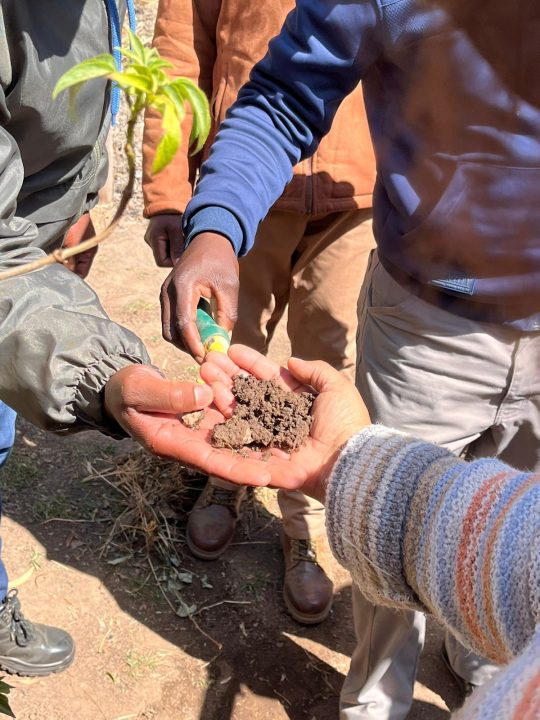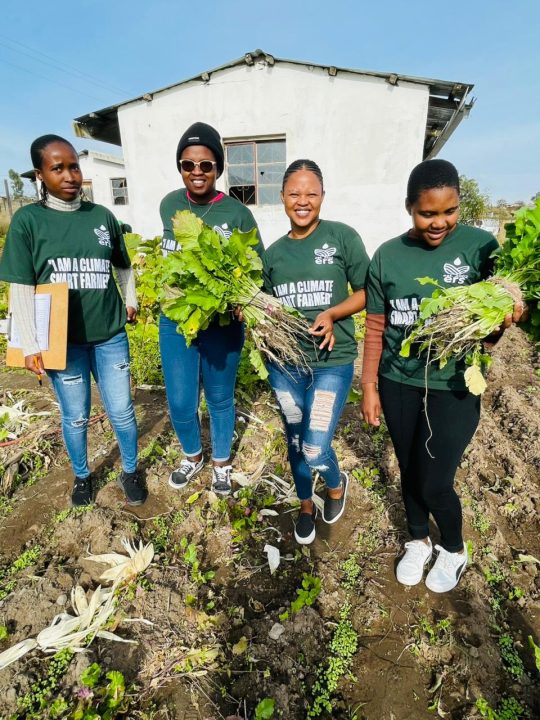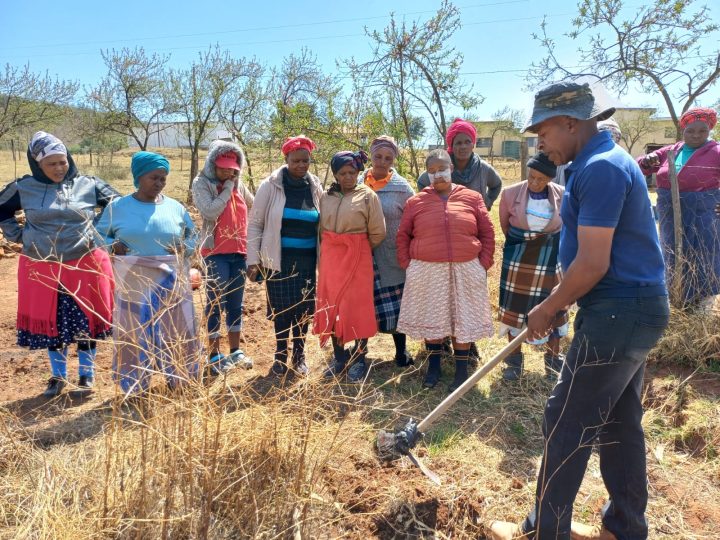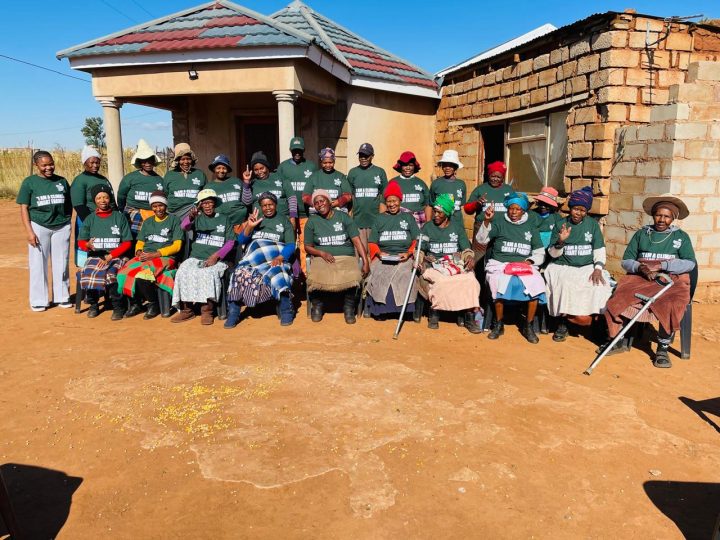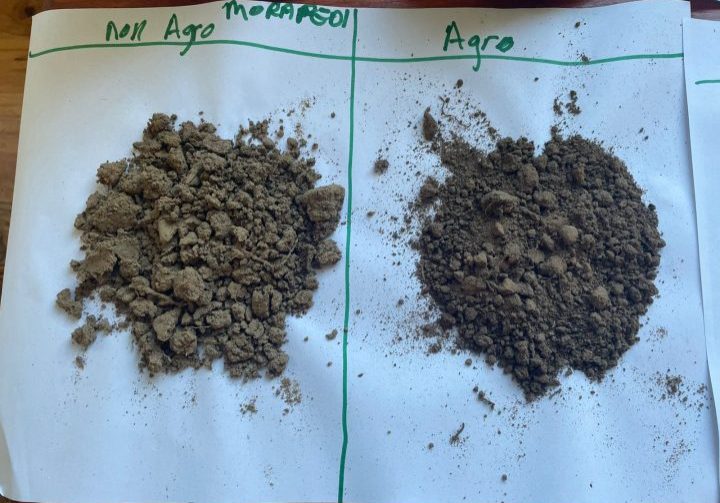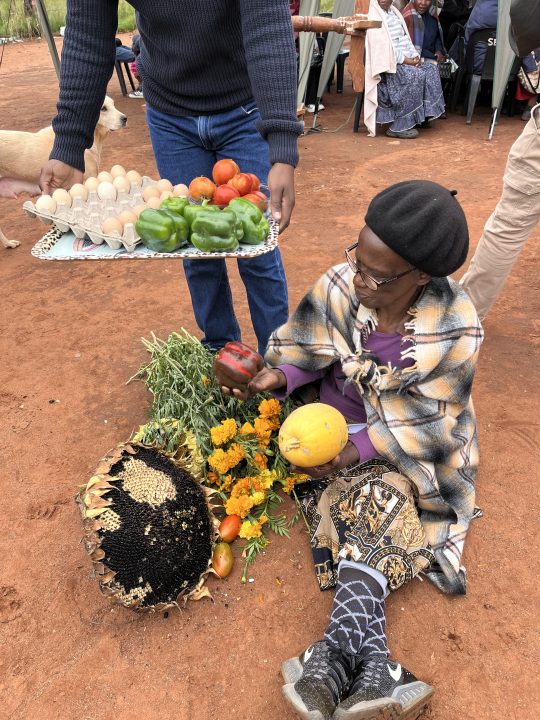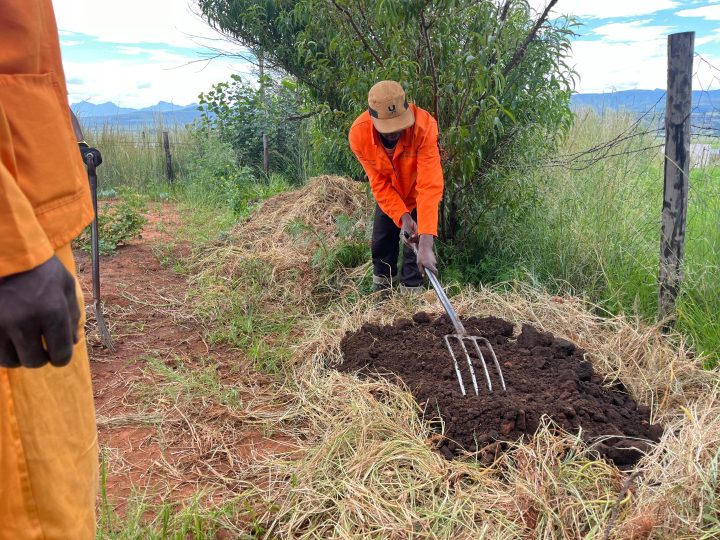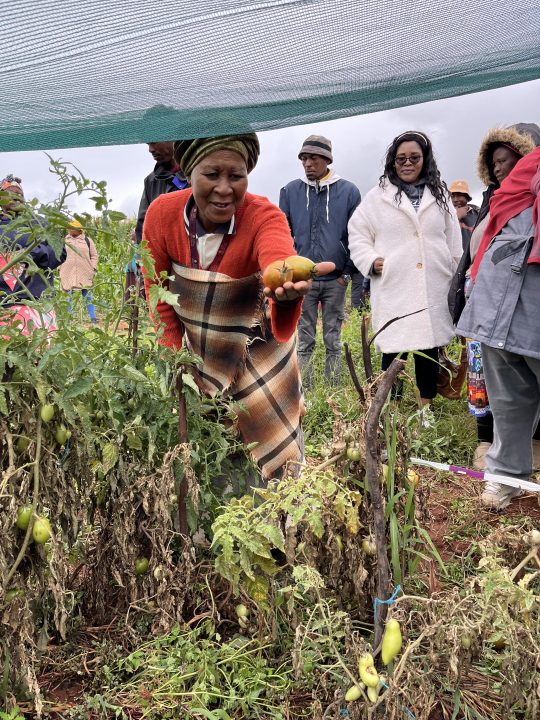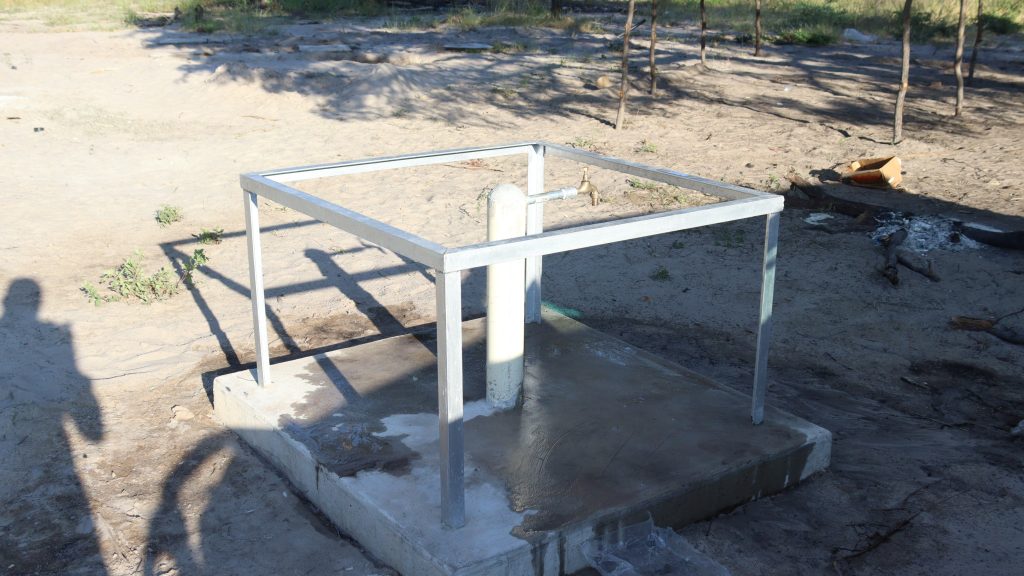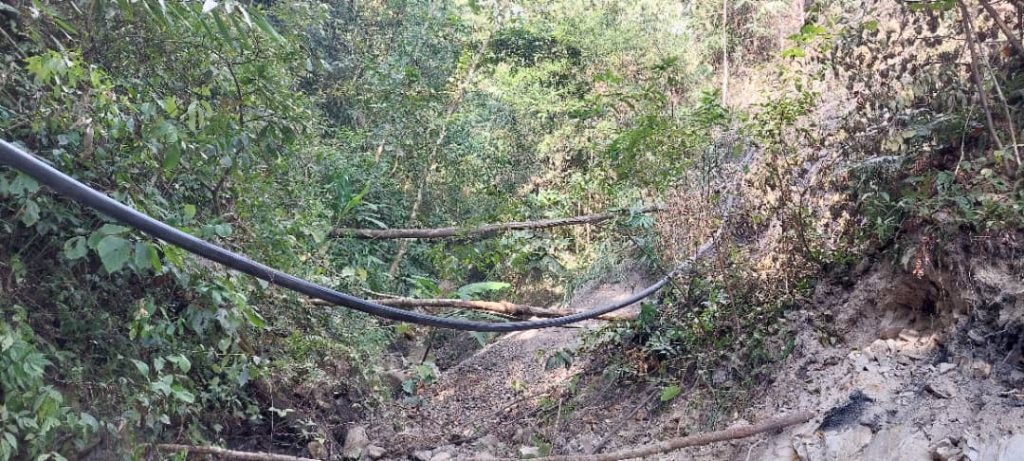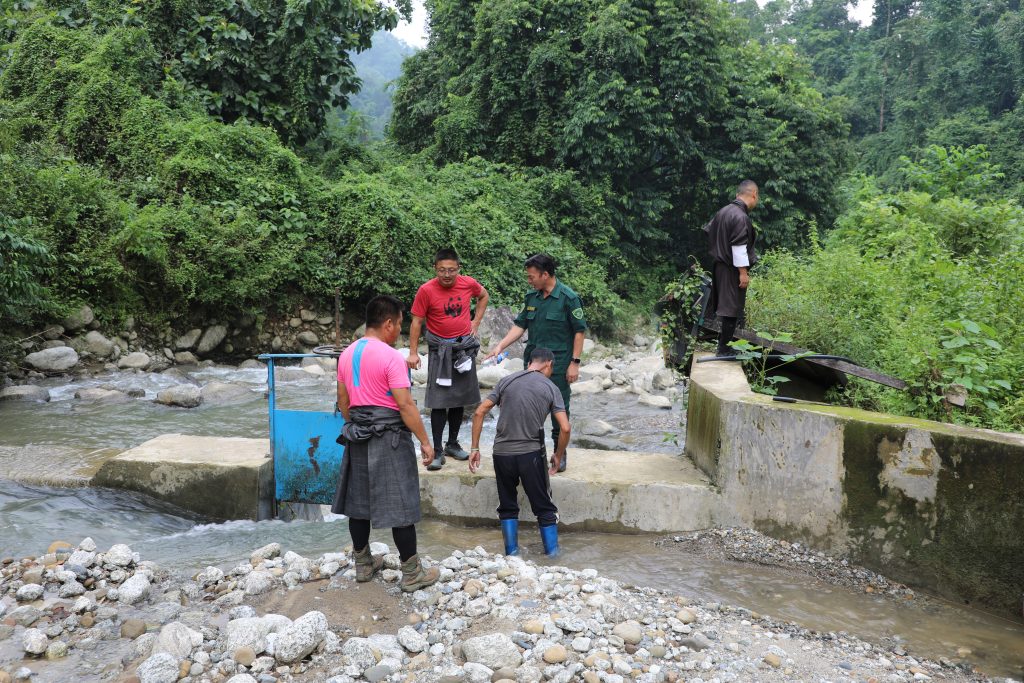Purpose
Increase household food security by integrating climate-smart agriculture, affordable sustainable water management, and youth-led gardens into homestead food production.
Climate Impacts
The following impacts were reported by community members in Matatiele:
• Decreased soil quality
• Loss of crop yields due to decreased water availability and an increase in pests
• Increased reliance on markets due to agricultural declines
• Decrease in livestock health due to diseases, pests, and lack of pasture
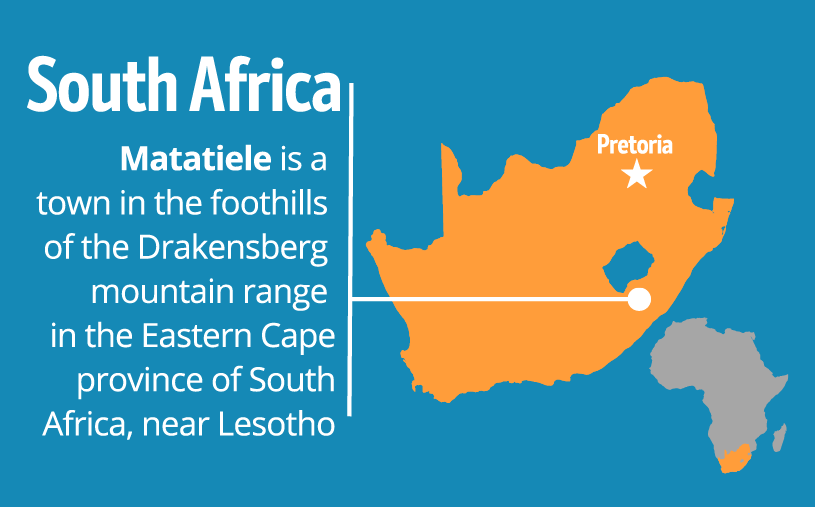

Activities
Method selection
Locally successful climate-smart farming methods were selected and catered to the unique environmental conditions and challenges of the region. Workshops were also held to introduce farmers and community members to suitable low-input techniques, including composting, mulching, water management, mixed-crop planting, natural pest control, seedling production, traditional seeds, and protection measures.
Site selection
Three core sites for the improved gardening have been selected as “demonstration hubs,” in addition to six smaller sites which will be youth-led. The three core sites are two large homestead gardens and one large school garden. The six smaller sites will be located in nearby villages and led by youths in the community, deemed “Ecochamps.”
Soil assessment
Different components of the soil at each site were evaluated to best determine what seeds the sites could support. This entailed evaluating the soil’s vegetation cover and cropping history, potential rooting depth, erosion status, nutrient density, texture, and drainage capacity.
Hub construction
Necessary infrastructure for each site was developed, including composting corners, mulch collection areas, seed beds and planting zones, and rainwater harvesting systems. The soil was also prepared in this stage by composting and mulching. The six smaller Ecochamp gardens were constructed similarly but on a smaller scale.
Seed selection
A local seed exchange was undertaken among project participants, which was supplemented by additional seeds. Seeds were then planted in the prepared beds at each site.
Learning exchanges
Two local in-field learning exchange events were hosted to facilitate the sharing of best practices and feedback among project participants, community members, Ecochamps, and Department of Agriculture staff. These events provided a space to also gather data and insights for future climate-smart agriculture projects.
project outcomes
project design
Climate change's unpredictable weather is disrupting agriculture in regions like Matietele, South Africa, where traditional farming is crucial for livelihoods and food security. Unstable rainfall, extreme weather, and temperature shifts make planting and harvesting difficult, leading to lower yields and reduced food availability. This decline causes economic instability and drives communities away from farming, risking the loss of traditional agricultural knowledge and worsening food production challenges. To combat food and income shortages caused by climate-driven agricultural losses, a local NGO called Environmental & Rural Solutions (ERS) created eleven climate-smart gardens to enhance resilience to crop losses and incentivize investment in homestead food production.
Eight of the eleven gardens are led by youths called “Ecochamps” and are located in the youths’ nearby villages, encouraging their sustained engagement in local agriculture. The other three gardens—located in two community areas and one school—are bigger, and each site was selected for its potential to serve as a focal point and educational center for enhancing agricultural productivity among over 100 neighboring farmers and educators. The aim of these climate-smart gardens was to improve soil quality and moisture retention through methods like composting, mulching, rainfall harvesting, and cover cropping, boosting the soil's water-holding capacity and resilience to drought, floods, cold, and erosion. These practices enhance agricultural stability, ensuring crops can thrive across diverse environmental conditions, leading to consistent food production and availability.
Through these interventions, community members observed noticeable differences in soil quality, and they are spending less on inputs and labor while their harvests are increasing. Soils where agroecological practices were implemented showed darker coloration, indicating an increase in organic matter due to climate-smart agriculture. Root systems in these areas were longer and more abundant, improving the plants' ability to absorb water and nutrients. Water tests revealed that the treated soils had lower erosion and better moisture retention. Additionally, soil structure improved significantly, allowing moisture and nutrients to move more efficiently and reducing erosion on-site. Surface cover also increased, helping to prevent excessive drying and cracking after the last rains in April. In areas where cover was maintained, soils felt warmer to the touch, suggesting an improvement in the soil micro-climate under the presence of organic residues.
Community members were also engaged through practical demonstrations and peer learning, with an emphasis on reduced pesticide use, aiming to restore healthy soil practices. By the end of the project, 100% of those engaged had stopped using pesticides and other chemicals on their soil. Many community members who own livestock feed their animals with outputs from the gardens, and also started using manure, creating a self-sustaining system. In addition to improved soil quality, seed management and smart harvesting techniques were implemented to increase yields and reduce losses from pests and decay, leading to a 30% increase in crop harvests for the those using the new techniques.
Photo credits: ERS

